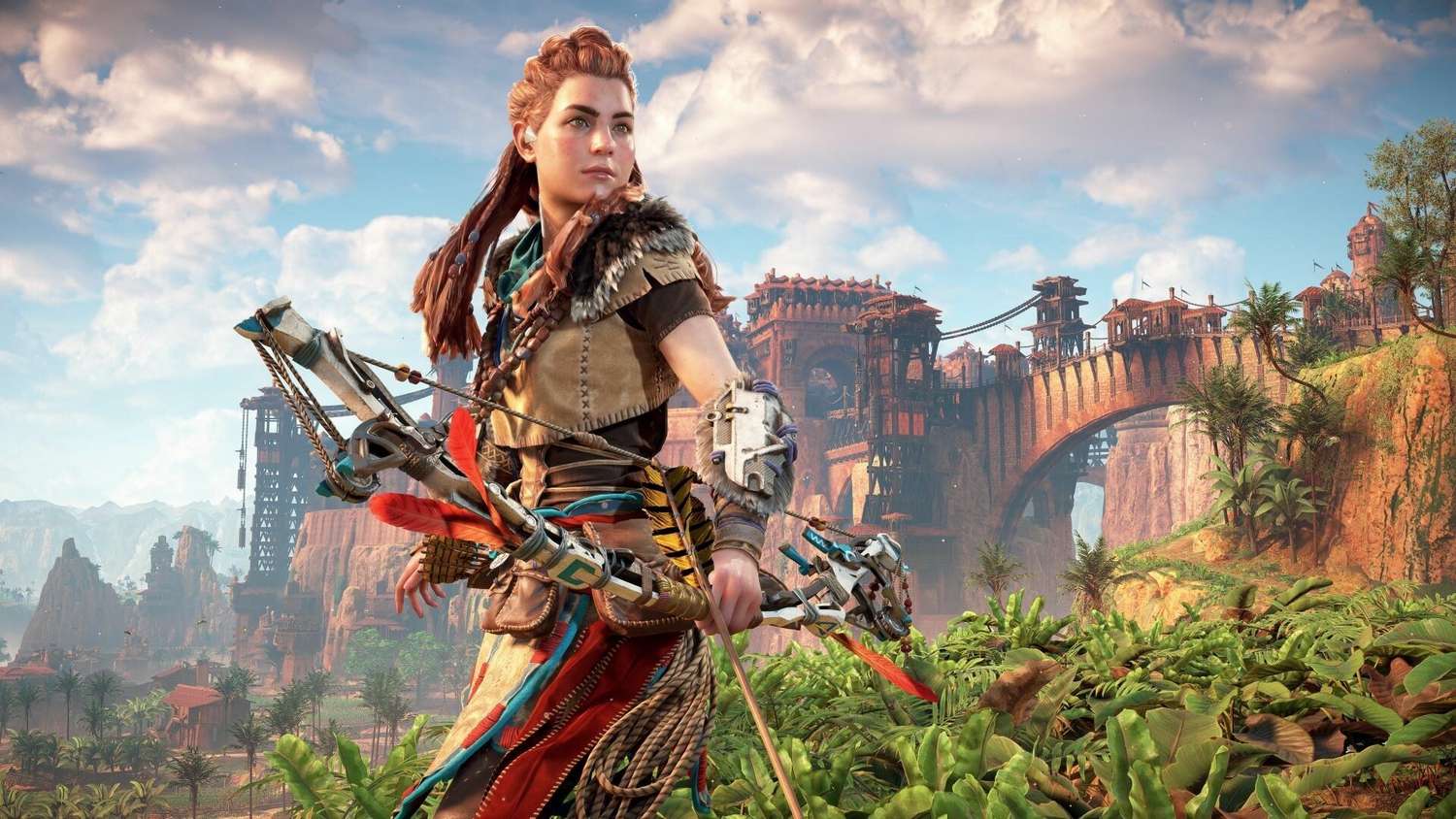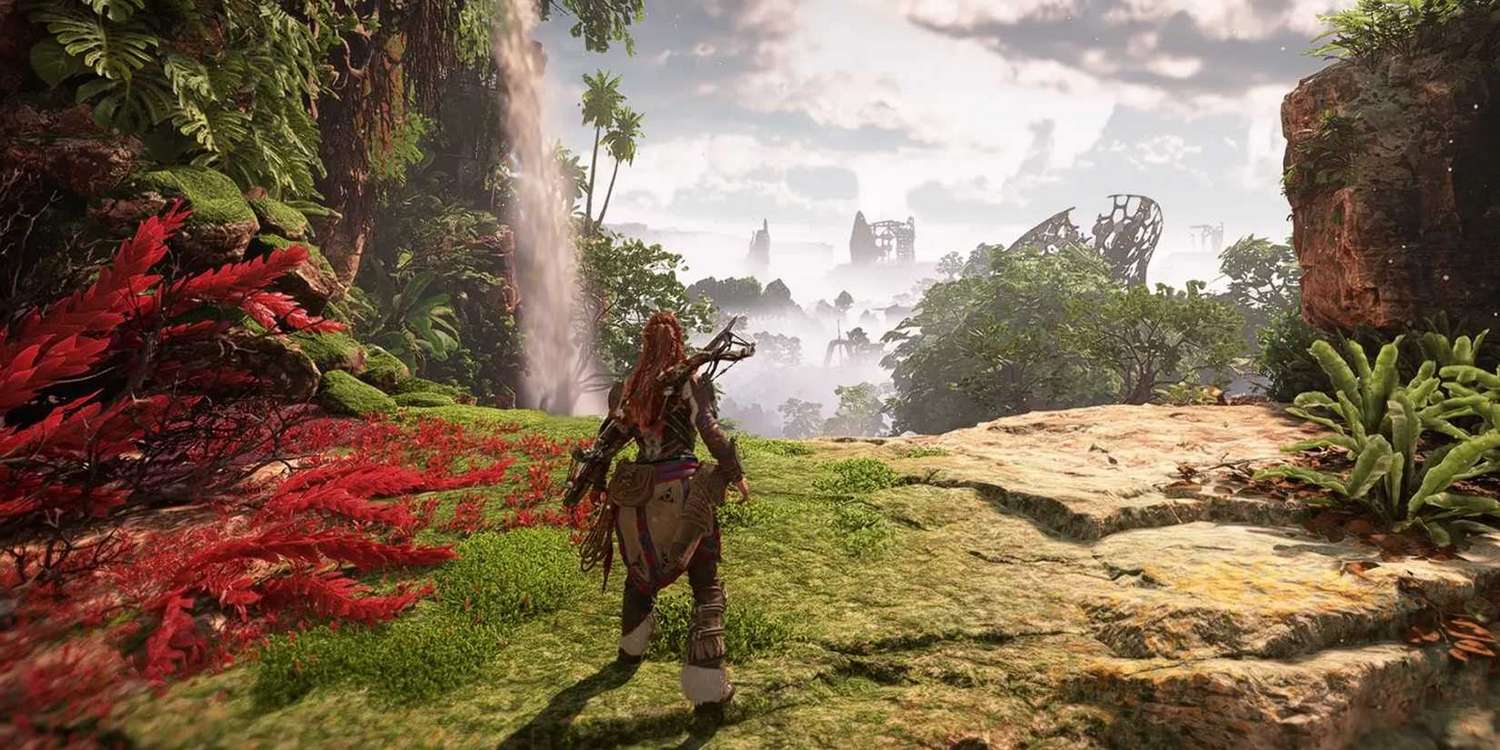The Battle for Aloy’s Image: What the Sony vs. Tencent Lawsuit Means for Global Game Development
Popular Now
 PUBG Mobile
PUBG Mobile
 Valorant
Valorant
 Black Myth: Wukong
Black Myth: Wukong
 NBA 2K24
NBA 2K24
 Geometry Dash
Geometry Dash
 Stumble Guys
Stumble Guys
 Candy Crush Saga
Candy Crush Saga
 Roblox
Roblox
 Grand Theft Auto V
Grand Theft Auto V
 Poppy Playtime
Poppy Playtime 
The intensifying legal dispute between Sony Interactive Entertainment (SIE) and Tencent Holdings Ltd. has taken a dramatic turn, with Sony filing a motion for a preliminary injunction against Tencent’s upcoming action-adventure title, Light of Motiram. This move signals a significant escalation in the already high-profile copyright infringement lawsuit, where SIE alleges that Light of Motiram is a “slavish clone” of its highly successful PlayStation exclusive franchise, Horizon Zero Dawn and Horizon Forbidden West. The outcome of this ruling could set a crucial precedent for intellectual property protection in the fiercely competitive global video game industry, particularly concerning the increasingly common practice of adapting established concepts.
The Core of the Allegation: Pervasive Copying and Consumer Confusion
The original lawsuit, filed in July, accused Tencent and its subsidiary, Polaris Quest, of developing a game that brazenly copies the distinctive elements of the Horizon series. Sony’s most recent court filing, submitted this week to the U.S. District Court for the Northern District of California, doubles down on these claims. The core elements cited in the complaint include:
- The protagonist: A fierce tribal warrior huntress with fiery red hair, a close visual and thematic resemblance to Horizon’s main character, Aloy.
- A post-apocalyptic world: A setting where primitive tribal communities coexist with advanced, large, animalistic machines, reflecting the unique aesthetic of Horizon’s “primitive meets high-tech” design.
- Specific auditory and visual similarities: The injunction request specifically targets a melody in the Light of Motiram trailer, which Sony claims is too close to two original compositions from the Horizon Zero Dawn soundtrack, further highlighting the extent of the alleged IP theft.
 Sony argues that the similarities are so “obvious and pervasive” that the public, including journalists and gamers, “loudly decried” the copying, immediately labeling the game a “knock-off.” This consumer confusion, SIE asserts, constitutes irreparable harm to the Horizon brand, its continued success, and its planned expansion, including the forthcoming Horizon Zero Dawn film adaptation (Source: IGN, DualShockers, Games Fray).
Sony argues that the similarities are so “obvious and pervasive” that the public, including journalists and gamers, “loudly decried” the copying, immediately labeling the game a “knock-off.” This consumer confusion, SIE asserts, constitutes irreparable harm to the Horizon brand, its continued success, and its planned expansion, including the forthcoming Horizon Zero Dawn film adaptation (Source: IGN, DualShockers, Games Fray).
Tencent’s Counter-Argument and Sony’s Rebuttal
In a counter-motion filed last month, Tencent moved to dismiss Sony’s lawsuit, characterizing it as an attempt to establish an “impermissible monopoly on genre conventions.” Tencent contended that the elements cited by Sony are “well-trodden tropes” common in various adventure games, drawing comparisons to titles like The Legend of Zelda and Far Cry. Furthermore, the Chinese megacorp argued that since Light of Motiram is not scheduled for release until late 2027, Sony “cannot possibly hope to demonstrate the ‘immediate threatened injury'” required for a preliminary injunction.
Sony, however, has vehemently rejected this defense, calling Tencent’s arguments “nonsense” and accusing the defendant of “playing a shell game” by quietly altering promotional materials and delaying the game’s release date shortly after the initial lawsuit (Source: PC Gamer, The Game Post). Sony’s current motion for a preliminary injunction seeks to immediately bar Tencent from:
- Using any material “copied or derived” from the Horizon works, including the core visuals and storyline.
- Utilizing the red-haired Aloy lookalike character in any promotional or developmental capacity.
- Promoting, displaying, or distributing Light of Motiram pending the resolution of the main lawsuit.
SIE maintains that the very loss of control over its valuable copyrighted material and trademarked character is sufficient grounds for an injunction, irrespective of the game’s distant release date. The damage, as Sony states, “is done, and it continues” through ongoing consumer confusion and dilution of the Horizon brand’s goodwill.
Broader Implications for High-Value IP in the Gaming Sector
 This high-stakes legal confrontation underscores the immense commercial value of AAA video game IP and the global challenges associated with its enforcement. The Horizon franchise is one of PlayStation’s most valuable assets, with multi-million-unit sales and a major Hollywood film adaptation in the works. Sony’s aggressive pursuit of the injunction, with declarations from top PlayStation and Guerrilla Games executives, signals a firm commitment to protecting this high-value IP from what it deems blatant infringement.
This high-stakes legal confrontation underscores the immense commercial value of AAA video game IP and the global challenges associated with its enforcement. The Horizon franchise is one of PlayStation’s most valuable assets, with multi-million-unit sales and a major Hollywood film adaptation in the works. Sony’s aggressive pursuit of the injunction, with declarations from top PlayStation and Guerrilla Games executives, signals a firm commitment to protecting this high-value IP from what it deems blatant infringement.
The potential ruling, expected by late November or early December, will be closely watched by developers and publishers worldwide. A decision in Sony’s favor could force a significant, costly redesign of Light of Motiram, effectively halting the current trajectory of its development and establishing a strong deterrent against future “slavish clones.” Conversely, a rejection of the injunction could embolden competitors to leverage similar thematic and visual tropes, arguing for the broad use of genre conventions in open-world adventure games.
Review and Analysis: Protecting a Unique Genre Identity
The Horizon series, developed by Guerrilla Games, is critically acclaimed for its unique synthesis of a pre-historic, tribal-focused civilization with advanced, animal-like robotics. This distinct aesthetic and narrative framework are the cornerstones of its unique selling proposition (USP). The legal challenge is not simply about a red-haired protagonist or a post-apocalyptic world—it is about the specific combination and expression of these elements, including character design, mechanical creature archetypes, and the overall mood, which Sony argues is non-coincidentally duplicated in Light of Motiram.
For the gaming community, this lawsuit raises important questions about creative freedom versus intellectual property rights. While all games draw inspiration, the clear visual parallels noted by the public suggest that Tencent may have crossed a line from inspiration into outright imitation. Sony is clearly using every legal tool available to defend its creative investment, a necessary step in an industry where franchise expansion and cross-media monetization are key to profitability and achieving a high return on investment (ROI).
Regardless of the final verdict, this case serves as a stark reminder of the financial and legal risks associated with game development that comes too close to established, protected franchises. It reinforces the need for developers to ensure their projects maintain a clearly distinct and original creative identity, especially in the saturated online gaming and PC games market, where the cost of developing AAA titles continues to soar.






